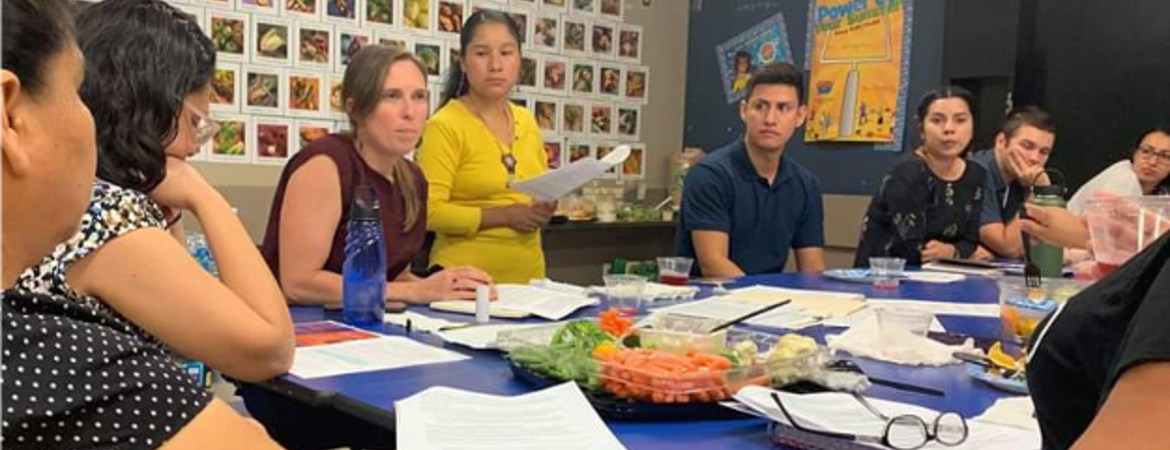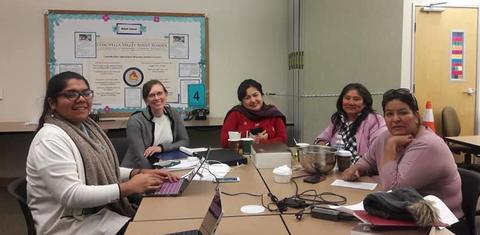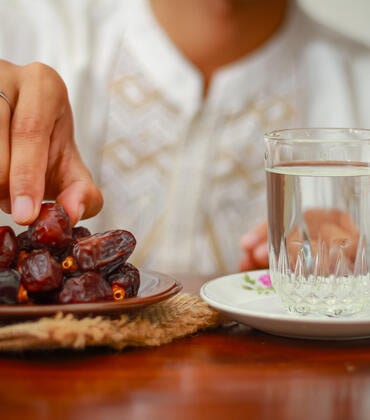
The University of California, Riverside, has been approved for a nearly $300,000 funding award through the Eugene Washington PCORI Engagement Awards program, an initiative of the Patient-Centered Outcomes Research Institute.
The funds will support “MyPlate Dissemination for Latinos in Rural Communities,” a project that aims to bring together academic, clinical, and community partners to help Latino patients living with diabetes or prediabetes access recipes and incorporate them into their daily food preparation.
Ann Cheney, a medical anthropologist and assistant professor in the Department of Social Medicine, Population, and Public Health at the UC Riverside School of Medicine, will lead the two-year engagement project in partnership with Borrego Health, a federally qualified health center providing patient-centered care; and FIND Food Bank, a regional food bank that addresses hunger and food insecurity.
Cheney said the project builds on her earlier work that engaged grassroots community advocates to identify community health needs among Latinos in rural farm-working communities in Southern California’s eastern Coachella Valley, one of the richest agricultural areas in the world.
“That work taught us that obesity and related chronic conditions, type 2 diabetes, and high cholesterol are significant health concerns that affect both adults and children in these communities,” said Cheney, who researches the use of health care services. “We found that despite having access to fresh fruits and vegetables through local food dispensaries, Latinos in the eastern Coachella Valley often struggle to incorporate local produce into their daily food preparation. Furthermore, food labels and recipes accompanying the food are in English only, creating a barrier to healthy eating as the majority speak Spanish, Purépecha, or another indigenous language. The community also expressed to us the need for health education specifically around nutrition education.”
The eastern Coachella Valley produces a wide variety of high-quality crops, contributing as much as $600 million in annual agricultural production. One of the most impoverished areas of California, the area is home to a largely underinsured Latino immigrant population that lives below the poverty line in substandard conditions.
“Despite being the backbone of the American food system, this population cannot easily access the fresh fruits and vegetables they harvest, which are necessary to help manage chronic illnesses such as Type 2 diabetes,” Cheney said. “Two factors contribute to this. First, the produce is typically sold at grocery stores at higher prices. Second, the majority of the produce is shipped outside the eastern Coachella Valley.”
Cheney and her team will engage patient and stakeholder groups in a variety of engagement and dissemination activities. A workgroup will tailor existing MyPlate Spanish-version recipes to accommodate the language needs, health literacy levels, and available food resources of low-income immigrant and indigenous Latino patients in the eastern Coachella Valley. These recipes will be disseminated by Borrego Health and FIND Food Bank.
“MyPlate guidelines are the cornerstone of government-sponsored nutrition education programs,” Cheney said. “Following these guidelines reduces risk of major chronic diseases. Yet, Latinos in rural communities have limited access to such programs. Where federal programs do exist, no or limited public transportation, nonflexible work schedules, and lack of publicly available health information impede their access to them.”
Cheney’s team will produce a culturally vetted cookbook and train health educators, outreach workers, and health educators known as “promotoras” to provide instruction on how to prepare the recipes and offer information about their nutritional value. Once trained, these groups will disseminate MyPlate recipes through cooking demonstrations to show how local food can be incorporated into daily food preparation.
“Our long-term goal is to to reduce the impact of chronic conditions such as diabetes on individuals, families, and health care systems serving rural communities,” Cheney said.
The funding awarded to Cheney’s project and others by the PCORI Engagement Award Program were selected through a highly competitive review process in which applications were assessed for their ability to meet PCORI’s engagement goals, objectives, and program criteria.
“This project was selected for Engagement Award funding because it will involve stakeholders in actively disseminating PCORI-funded research results to those who can use this information to inform health care decisions,” said Jean Slutsky, PCORI’s chief engagement and dissemination officer. “We look forward to working with UC Riverside throughout the course of the two-year project.”
PCORI is an independent, nonprofit organization authorized by Congress in 2010 to fund comparative effectiveness research that will provide patients, their caregivers, and clinicians with the evidence needed to make better-informed health and health care decisions.




